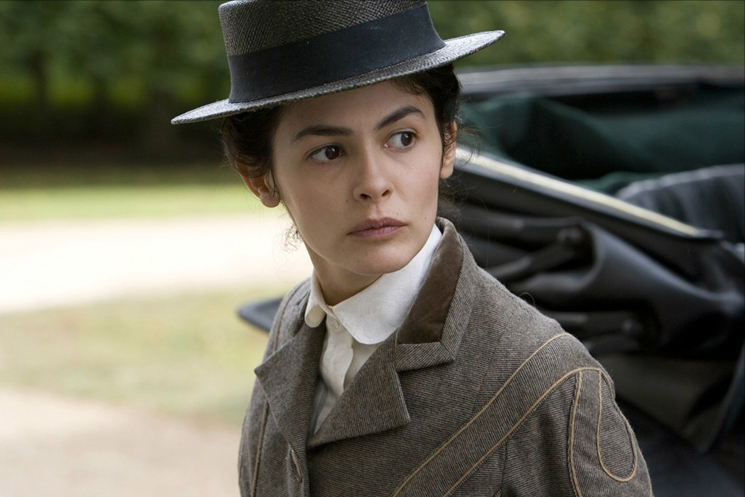“I’m the only one with Chanel couture. Let them kiss my buttons.” -Patsy Stone, Absolutely Fabulous
How does an ingénue capitalize on her first movie’s success — the one that makes her a household name, and a star? You must have the following materials in stock (Hope Davis, are you reading this?): the actress must be savvy enough to know what her strengths and limitations are; the script either captures the zeitgeist, or tells a mild, widely accessible story; and the director, somehow, finds a way to unveil the muse. Apart from employing a fame-hungry entourage, that magical combination of actress/script/director, which shapes the audience’s initial reception of the ingénue, all depends upon her ability to choose the next, right film (see Audrey Hepburn vs. Jean Seberg).
When Shirley MacLaine walks in front of the camera for the first time in Alfred Hitchcock’s The Trouble with Harry (1955), her lack of artifice, coupled with her natural quirkiness, beams right through the drab housedress she sports; her movements are calm and confident — she’s ready for trouble. By the time Billy Wilder’s The Apartment (1960) is released, MacLaine has added a layer of complexity to our original impression of her. The ingénue has to grow up at some point. MacLaine, instead of running from that fact, allows a fragility into her performance, and her cinematic evolution begins.
With the release of Coco Before Chanel, we are confronted with a shock: where on earth did Audrey Tautou’s charm and vitality go? It’s been torn to shreds, and all for the sake of a rote, dreary biopic that borrows its narrative arc from La Vie en Rose (2007), but lacks that film’s color and passion. (Marion Cotillard won the Best Actress Oscar that year for her performance as Edith Piaf). In Amélie (2001), Tautou, a rail-thin waif with a mischievous grin that did nothing but embolden her, captured the attention of every art house moviegoer that year. The audience rooted for her character, and longed for Amélie to get her man.
Clearly wanting to be more than an endearing gamine, Tautou was part of an ensemble cast in Stephen Frears’ gritty London-based drama Dirty Pretty Things (2002). She succeeded in the role of a Turkish immigrant, in part, because the film doesn’t solely depend upon her performance. However, it wasn’t until last year’s Priceless, that Tautou landed a role which accesses the charm we first recognized, and then inverts that very same girlish charm by placing it in the character of a high-class prostitute. This film recognized her range, and her limitations; Tautou succeeds as a comedienne, whether the subject is light or dark.


